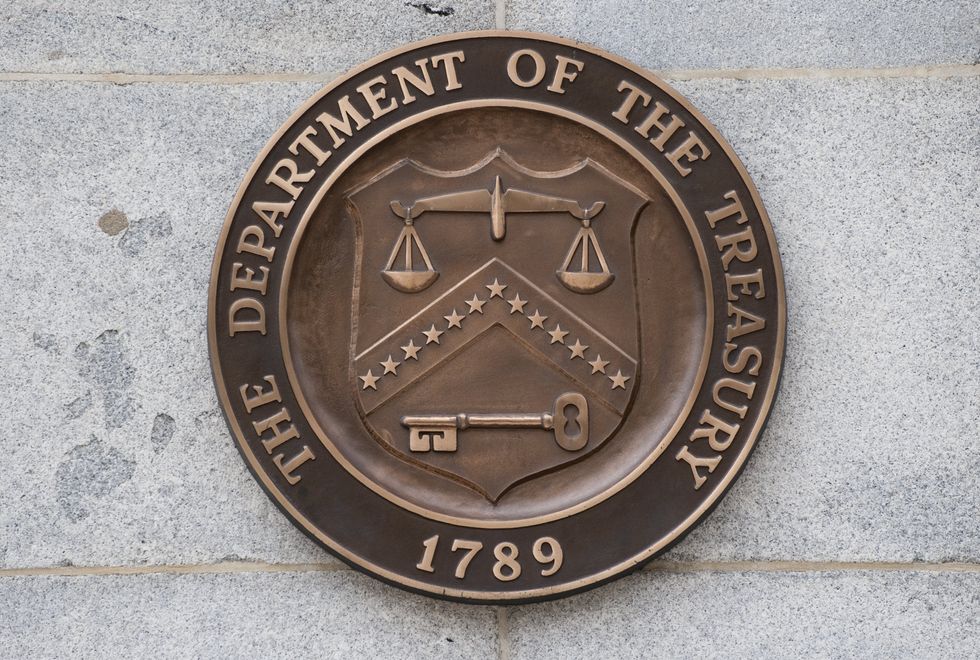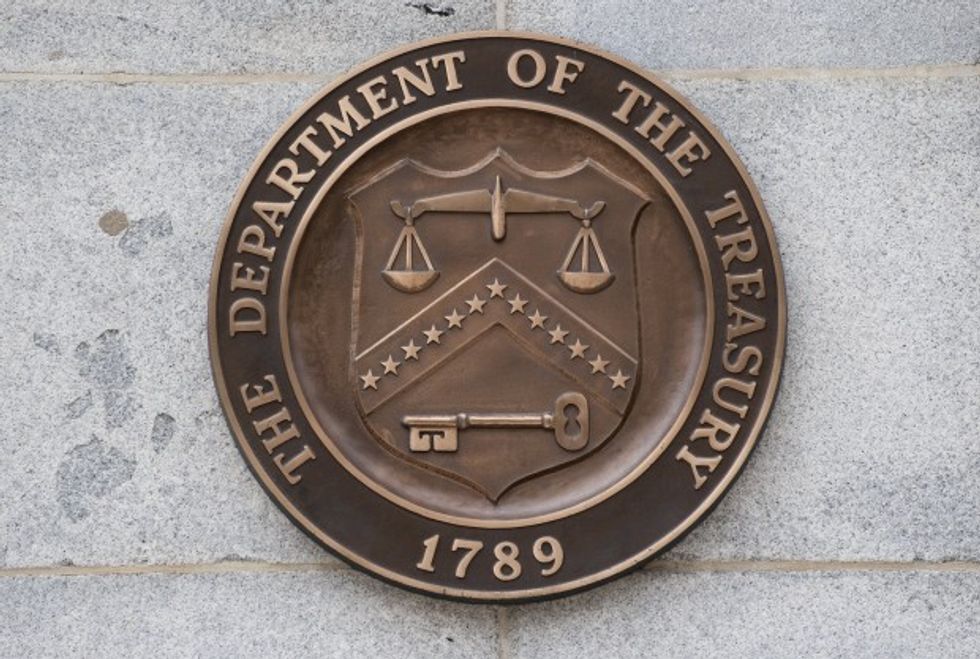
The logo of the US Treasury Department is seen on the outside of the Treasury building in Washington on August 19, 2011. AFP PHOTO/Saul LOEB (Photo: SAUL LOEB/AFP/Getty Images)

When Pfizer announced last year a proposed merger with Irish-based Allergen, it provided yet another opportunity for politicians to demagogue over the issue of corporate taxes. Such rhetoric is to be expected, particularly during a campaign season, but the Obama administration took populist pandering to a new level when the Treasury Department crafted rules specifically tailored to blow-up the Pfizer-Allergen deal, an outcome which they recently achived. Caught in the cross-hairs of this misguided confrontation are American workers and investors.
The Pfizer deal was structured as a “corporate inversion,” which without getting into too much detail means that its new corporate headquarters would have shifted to Ireland where tax rates are more competitive.

Contrary to a common misunderstanding, the merger would not have changed how Pfizer was taxed on economic activity within the United States. The new company's domestic profits would have been taxed at the same high corporate rate. The deal's only impact would have been to allow Pfizer to compete better on the global stage, free of a uniquely oppressive tax system that alone among developed nations imposes tax obligations on income earned in foreign jurisdictions.
That won't happen now, however, thanks to an unprecedented effort by the Treasury Department to change the rules in the middle of the game in order to target a particular business deal. They've proposed rules which both the markets and industry analysts have perceived as targeting the Pfizer merger, forcing the company to abandon its plans. Former Treasury official Stephen Myrow called it, “an aggressive use of a rarely-used rulemaking process that is usually reserved for crisis situations.” He summarized, “They're basically treating inversions as a crisis.”
While companies responding logically to the perverse incentives of the U.S. tax code reflects poorly on lawmakers and leaves the economy performing below its full potential, it hardly constitutes a crisis. The only proper avenue for addressing the issue should be through the elected legislature.
That's why my organization, the Center for Freedom & Prosperity, joined a coalition of 13 other free market groups in calling on Treasury to leave the legislating to the legislators. Only Congress has the power to fix what ails the U.S. tax code.
And there's a lot that needs fixing. While the rest of the world has evolved on corporate tax rates, recognizing that it is widely considered the most destructive tax and one that gets almost entirely passed on to workers and consumers, the United States has by its inaction become uncompetitive on the global stage. With a combined state and federal corporate tax of up to 39.1 percent, and a worldwide tax system that insists on applying it even on income earned in foreign markets where non-American companies pay only the local rates, there's little wonder why multinational businesses don't want to be headquartered in the United States anymore.
Regulators are mistaken in thinking they can fight economic reality through onerous rules aimed at preventing a corporate exodus. They've tried in the past and have always ultimately failed. The only real solution is for Congress to fix the tax code so that businesses no longer wish to leave. That means lowering the rate and adopting the common sense notion that income should be taxed only by the jurisdiction in which it is earned.
By making it harder for an American company to compete overseas, Treasury has succeeded only in punishing its workers, consumers, and shareholders. The latter likely includes millions of ordinary Americans whose pensions and investment portfolios include the pharmaceutical giant. The profits they are unable to earn in foreign markets will instead go to companies from countries with more reasonable tax codes.
There are likely to be lasting repercussions from Treasury's hasty action beyond just the abandoned Pfizer-Allergen deal. It has created a fog of uncertainty over the market, where businesses can no longer count on the rules not changing on a bureaucratic whim. That's bad for the economy and bad for the rule of law. It's time for Congress to step in and improve the tax code while also making clear that the writing of tax law is their responsibility alone.
Andrew F. Quinlan is the co-founder and president of the Center for Freedom and Prosperity (freedomandproperity.org and @cfandp).
–
TheBlaze contributor channel supports an open discourse on a range of views. The opinions expressed in this channel are solely those of each individual author.